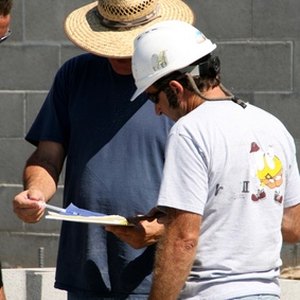
As the economy declines, the risk of homebuilders going bankrupt leaves many buyers stuck with unfinished homes that they cannot occupy for months. For future homeowners, checking a builder's financial history, performance and projects remains their best option. Other ways include the addition of escrow accounts or "springing" clauses to strengthen homeowners' contractual rights. Contractors and subcontractors can accomplish the same goal by asserting a lien against the property to recoup their own losses.
A Typical Case
Neumann Homes' 2007 collapse shows how homeowners suffer when builders go bankrupt. When Neumann Homes sought Chapter 11 bankruptcy protection, the company owed about $286.9 million. In this situation, secured creditors with the right to foreclose on property get paid before homeowners -- who are classified as unsecured creditors. However, unless Neumann's properties sold spectacularly well, the homeowners likely would get nothing and find themselves stuck with an abandoned or incomplete home.
Common Bankruptcy Outcomes
When homebuilders go bankrupt, the homes stay empty until another contractor completes them. This leaves buyers unable to move in, waiting for months -- or even years -- to get their deposits back. Homeowners struggling to fix problems like leaking roofs can seek the new contractor's help, if one emerges to complete the project. If the new contractor's decision is negative, the homeowner must foot the bill himself.
Construction Liens
Depending on their state's law, contractors and subcontractors can assert lien rights against bankrupt homebuilders. Variously known as artisan's, construction, materialmen's or mechanic's liens, the amount depends on the value of goods or services provided. This allows contractors to press repayment claims against the property, as long as they satisfy their state's laws. In states like Washington, homeowners can be held liable for these costs -- even if they have paid the homebuilder in full.
Contractual Protections
Prospective homeowners can seek two contractual provisions to protect their rights. One method is putting the money in a third-party escrow account, which allows the deal to end if a bankruptcy occurs. Without that language, homeowners slip to unsecured creditor status. Homeowners can also request a "springing provision" in their contracts. This language allows them to walk away if the homebuilder files for bankruptcy.
Major Lessons
The collapse of Neumann Homes underscores the need for intensely vetting builders before any money changes hands. By the time it filed for bankruptcy, Neumann Homes had pledged 22 projects to eight major lenders -- creating a debt load too crushing to overcome, "Bloomberg Businessweek" reported. Homeowners should visit building sites before signing a contract. If a building company is public, an online search can determine how well they are doing in different markets.
References
Writer Bio
Ralph Heibutzki's articles have appeared in the "All Music Guide," "Goldmine," "Guitar Player" and "Vintage Guitar." He is also the author of "Unfinished Business: The Life & Times Of Danny Gatton," and holds a journalism degree from Michigan State University.

